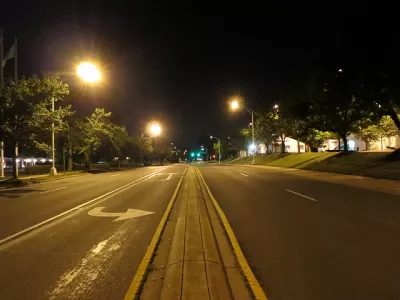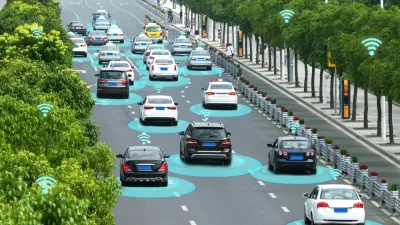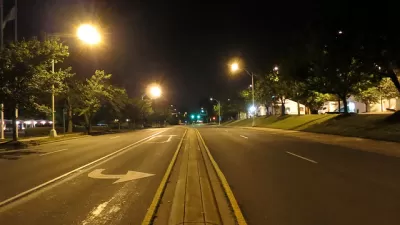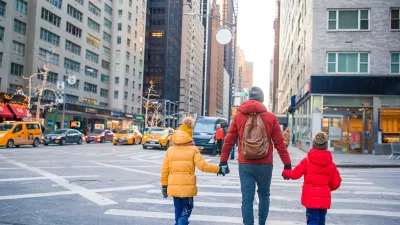For the Charlotte Observer, Ely Portillo reports on a forum calling for urbanist reforms and doubts whether auto-loving residents will be receptive.

Like most of the United States, Charlotte, North Carolina relies heavily on auto infrastructure. This may not change soon: "Despite some of the steps Charlotte has taken toward a 'little asphalt' mindset – think reducing the number of East Boulevard lanes, the streetcar, the Blue Line extension and more bike lanes – this remains largely a car town."
Author Ely Portillo writes, "I have family in southeast Charlotte, a 30-minute drive from where I live, and if widening Independence Boulevard would cut that time even five minutes, well, that sounds pretty attractive to me – even if it's not a long-term solution to sprawl." Residents are used to free parking, and concerns about traffic lessen the attraction of policies like complete streets and traffic calming.
Reasons in favor of more 'little asphalt' in Charlotte apply across the country:
- Increased interest in urban life among (some, not all) Millennials and empty-nest Boomers.
- Sprawl and car-heavy infrastructure degrades the environment on a number of levels.
- Grids of smaller roads may reduce traffic by diverting it, rather than relying on one or two clogged arterials.
FULL STORY: Can Charlotte overcome its love of roads?

Planetizen Federal Action Tracker
A weekly monitor of how Trump’s orders and actions are impacting planners and planning in America.

San Francisco's School District Spent $105M To Build Affordable Housing for Teachers — And That's Just the Beginning
SFUSD joins a growing list of school districts using their land holdings to address housing affordability challenges faced by their own employees.

The Tiny, Adorable $7,000 Car Turning Japan Onto EVs
The single seat Mibot charges from a regular plug as quickly as an iPad, and is about half the price of an average EV.

Seattle's Plan for Adopting Driverless Cars
Equity, safety, accessibility and affordability are front of mind as the city prepares for robotaxis and other autonomous vehicles.

As Trump Phases Out FEMA, Is It Time to Flee the Floodplains?
With less federal funding available for disaster relief efforts, the need to relocate at-risk communities is more urgent than ever.

With Protected Lanes, 460% More People Commute by Bike
For those needing more ammo, more data proving what we already knew is here.
Urban Design for Planners 1: Software Tools
This six-course series explores essential urban design concepts using open source software and equips planners with the tools they need to participate fully in the urban design process.
Planning for Universal Design
Learn the tools for implementing Universal Design in planning regulations.
Smith Gee Studio
City of Charlotte
City of Camden Redevelopment Agency
City of Astoria
Transportation Research & Education Center (TREC) at Portland State University
US High Speed Rail Association
City of Camden Redevelopment Agency
Municipality of Princeton (NJ)





























